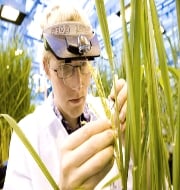GM crops only after biosafety, socio-economic evaluation: Parliamentary Committee
The Parliamentary Standing Committee has recommended that no genetically modified (GM) crop should be introduced unless the biosafety and socio-economic desirability is evaluated in a transparent process. It also called for placing an accountable regime in this regard.
The recommendation was made by department-related parliamentary standing committee on science and technology and environment and forest in its 301st report on “GM crop and its impact on environment”.
Report Highlights
The Committee has also recommended that the Environment Ministry (MoEFCC) should examine the impact of GM crops on the environment thoroughly, in consultation with all stakeholders, so that all its probable effects are very clear.
It also noted that the GM crop regulator GEAC (Genetic Engineering Appraisal Committee) gave its approval for commercialisation of GM mustard inspite of matter pending for decision in Supreme Court. It held that GM mustard being herbicide-tolerant GM organism (GMO), there are evidences on adverse impacts of such GMOs elsewhere in world.
Background
The Centre for Genetic Manipulation of Crop Plants (CGMCP), Delhi University, had submitted an application to the GEAC for the environmental release of GM mustard hybrid DMH-11 and the use of parental events (EH2 mod bs 2.99 and varuna bn 3.6) for the development of a new generation of hybrids. The MoEFCC had received over 700 comments from various stakeholders, including farmers and researchers, on the Assessment of Food and Environmental Safety (AFES) report on GM Mustard.
Month: Current Affairs - August, 2017


